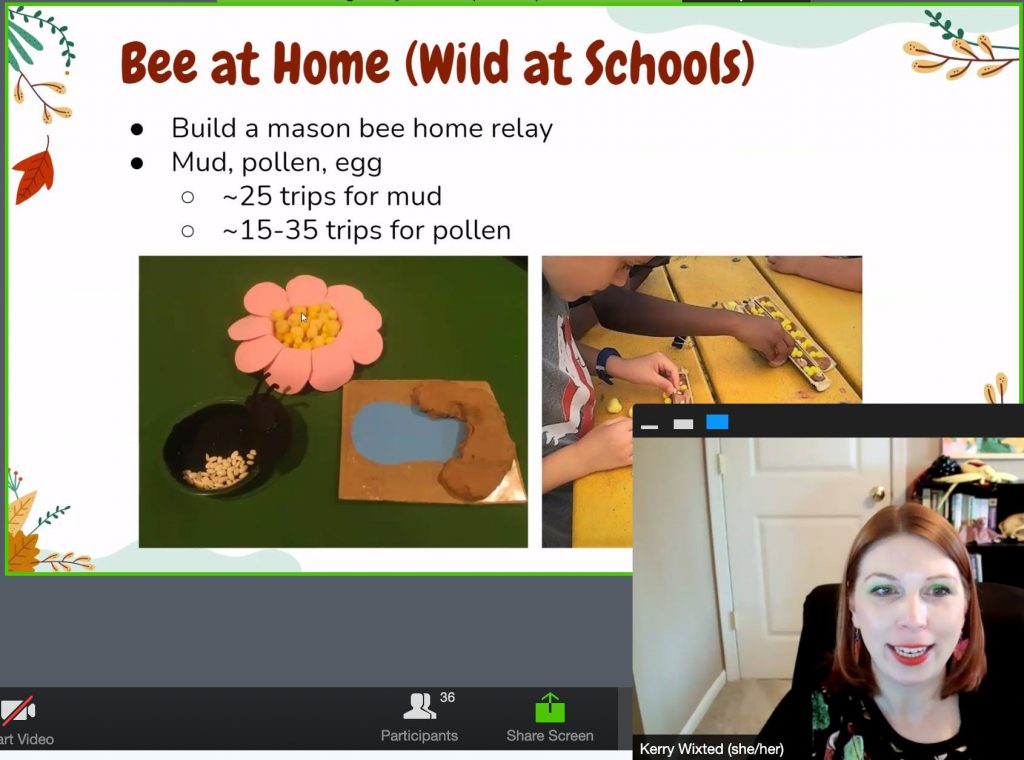Tools of the Trade: Virtual Environmental Education
Environmental educators throughout the Department of Natural Resources depend on being outdoors to share our passion and love for Maryland’s flora and fauna with our constituents. Some of the important services we provide to Marylanders include providing field experiences for school children, coordinating the Becoming an Outdoors-Woman program, training Master Naturalists and teachers, as well as providing environmental education in our state parks.
So what did DNR’s environmental educators do in March of 2020 when they realized they would not be able to help Maryland students and adults explore the environment in person? Answer: quickly adapt to teaching adults and students virtually. Educators learned how to use various online learning platforms, some previously unknown, including Zoom, the Google Suite, Nearpod, Mentimeter, Padlet, and YouTube.
During the pandemic, DNR’s Wildlife and Heritage Service educators presented over 147 programs reaching over 6,700 constituents. They created more than 63 professional development workshops that taught Marylanders about a wide range of subjects, from the benefits of native plants to how to attract pollinators to your garden. They also created a plethora of online resources and webinars that allowed educators within and outside DNR to reach many new audiences across the state.
Moreover, the Maryland Park Service staff produced more than 30 “Virtual Ranger Experience” videos since 2020. These short, three-minute video clips were produced in the field by staff at state parks on a variety of topics, ranging from virtual Scales & Tales programs with live animals to tours of the Harriet Tubman Visitor Center, and some fascinating discoveries about the history, flora, and fauna found on our public lands. These popular videos were promoted through social media outlets on a regular basis and were a new way to connect with state parks during the pandemic. But more than just entertaining, these videos were useful to enhance virtual teaching. All of the Virtual Ranger Experience videos are still available for viewing on the DNR YouTube channel, accessible though the department website.
Realizing that people were spending additional and unplanned time at home—both indoors and out—the Park Service developed a way to connect the public to place-based nature and stewardship essentials at home. The Park Service launched a new program called “Create Your Own State Park,” encouraging families to turn their home or yard of any size into their own state park. This is accomplished through a variety of different activities, from identifying plants or trees already on site to creating a campsite or picnic area.
This program was an ideal way to connect families to nearby-nature experiences, encourage conservation at home and help expand native habitats for wildlife.
With support from DNR grant funding, Caroline County schools were able to partner with Pickering Creek Audubon Center, through which the center’s experts could train teachers of Environmental and Earth Science and American Government through virtual platforms and onsite visits. Virtual outdoor learning investigation videos and activities were created to enhance students’ learning, and program materials were also translated into Spanish. This work continues on the high school level to enhance the county’s environmental literacy plan.
Despite the hardships of the pandemic, DNR’s environmental educators and park rangers rose to the task of continuing to educate Marylanders on the importance of preserving and protecting our vital natural resources. What was learned from this experience will be used going forward. DNR educators will continue to reach new audiences virtually through online webinars and training videos through online platforms when staff can not be there in person.
dnr.maryland.gov/education/Pages/default.aspx
Amy S. Henry is a Conservation Education Specialist with the Maryland Department of Natural Resources Chesapeake and Coastal Service. Article appears in Vol. 24, No. 4 of the Maryland Natural Resource magazine, fall 2021.


 1-888-373-7888
1-888-373-7888 233733
233733